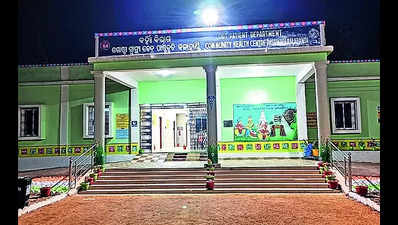- News
- City News
- cuttack News
- HC backs govt move not to extend, renew licences of pharmacies in medical colleges
Trending
This story is from April 26, 2024
HC backs govt move not to extend, renew licences of pharmacies in medical colleges


The ‘Niramaya Scheme’ is a flagship programme of the Odisha govt designed to facilitate the distribution of free medicines and consumables to all individuals accessing healthcare services at govt health facilities.
The state health and family welfare department notified the decision on February 27, 2015. License holders to run on-campus medicine stores filed petitions challenging the notification in the same year.
There were a total 146 licence holders to run on-campus medicine stores operating inside the campuses of govt health institutions across the state. As things stand today, 87 such on-campus medicine stores are operating across the state deriving benefit from this court’s interim stay orders.
Dismissing the batch of petitions, the single-judge bench of Justice SK Panigrahi said: “The free medical care policy by the state marks a monumental step forward in prioritizing public health and welfare. By providing essential healthcare services and medications at no cost to citizens, this policy demonstrates a commitment to ensuring access to healthcare for all, regardless of socio-economic status.”
“It not only addresses immediate healthcare needs but also contributes to long-term benefits such as improved health outcomes, reduced healthcare disparities, and enhanced overall quality of life for the population. Additionally, such a policy aligns with principles of social justice and equity, promoting the fundamental right to healthcare for all individuals,” Justice Panigrahi observed in the April 19 order, copy of which was released on Wednesday.
Accordingly, Justice Panigrahi said: “In the current scenario, although the involved parties are at a disadvantage, their plight is outweighed by the broader objective of welfarism. While the petitioners may face challenges, their situation does not pose a threat to their constitutional rights.”
We also published the following articles recently
Government asks campus medicine stores to vacate from public health institutions
Odisha government instructs campus medicine stores to vacate public health institutions post Orissa High Court ruling. Stores, operating under interim orders, must vacate within 15 days. Medical colleges/hospitals affected, possession to be recovered promptly.
Odisha government instructs campus medicine stores to vacate public health institutions post Orissa High Court ruling. Stores, operating under interim orders, must vacate within 15 days. Medical colleges/hospitals affected, possession to be recovered promptly.
IRDAI removes age limit on health insurance policies
IRDAI removes age limit for health policies, allows multiple claims. Premiums can be paid in instalments, and AYUSH treatments have no coverage limit. A dedicated platform handles complaints and claims.
IRDAI removes age limit for health policies, allows multiple claims. Premiums can be paid in instalments, and AYUSH treatments have no coverage limit. A dedicated platform handles complaints and claims.
Medicines to politics: Doctors in the fray
Doctors in Odisha, like Sambit Patra and Dr. Pramod Mallick, leveraging medical backgrounds in politics. Contesting across various seats in the 2024 general elections, aiming to bring healthcare expertise into governance.
Doctors in Odisha, like Sambit Patra and Dr. Pramod Mallick, leveraging medical backgrounds in politics. Contesting across various seats in the 2024 general elections, aiming to bring healthcare expertise into governance.
End of Article
FOLLOW US ON SOCIAL MEDIA










